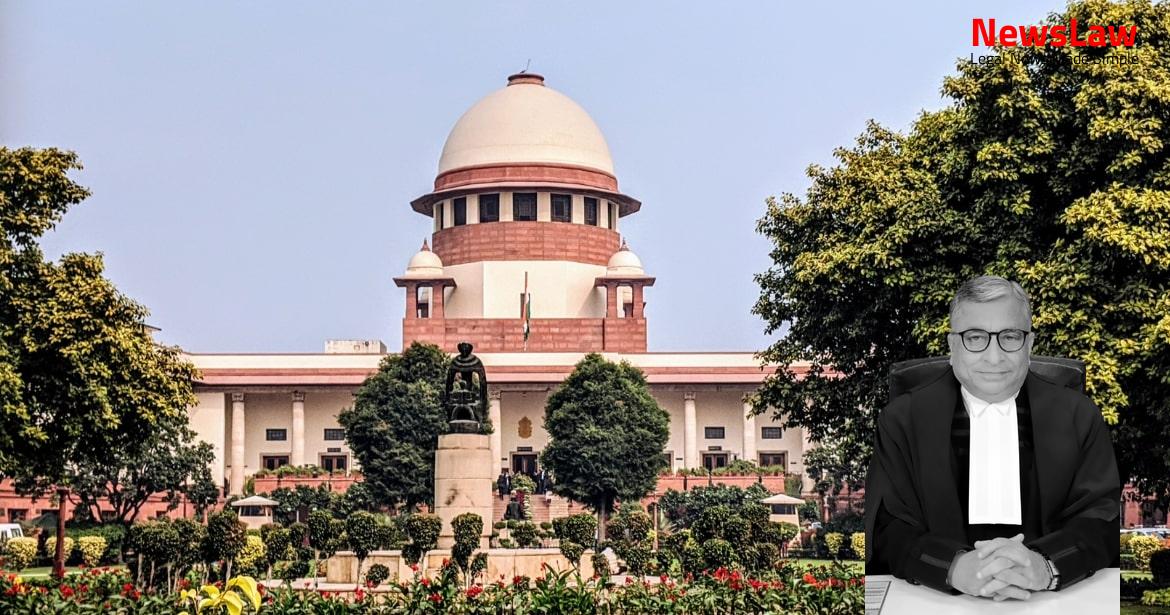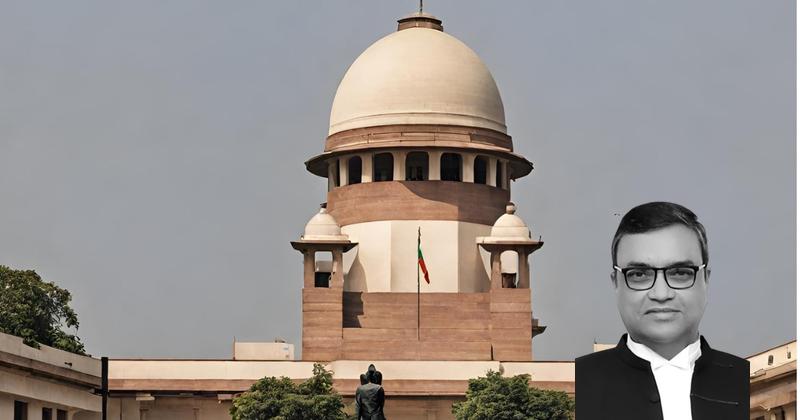Explore the detailed legal analysis by the court regarding liability issues arising from expired driving licences. The court’s thorough examination of the impact of driver’s licence expiry on insurance liability provides valuable insights into this complex legal area. This summary highlights key points from the court’s analysis, shedding light on the responsibilities of employers, the role of insurance companies, and the legal implications of driving with an expired licence.
Facts
- The first respondent filed a petition under the Workmen’s Compensation Act seeking compensation.
- The accident occurred on 20.5.1999 while the first respondent was driving a truck owned by the appellant.
- The appellant was found in breach of the Compensation Act for not renewing the driver’s licence of the first respondent.
- The High Court absolved the insurance company of liability and imposed it on the appellant due to the breach of the insurance policy.
- The High Court noted Section 4 of the Compensation Act regarding the amount of compensation based on factors like monthly wages and disability.
- The High Court found no provision under the Act for payment of medical expenses of the claimant.
- The monthly wages considered for compensation were limited to Rs.2,000 despite the claimant’s stated monthly wage of Rs.4,500.
- The first respondent was found to have 20% permanent disability as a consequence of the accident.
- The Commissioner awarded Rs. 94,464 for injuries and Rs. 67,313 for medical expenses to the first respondent.
- The amount of compensation was quantified as Rs. 83,968/-
- Penalty of 50% on the amount of compensation was Rs. 41,984/-
- Interest from 6.1999 to 3.3.2009 amounting to Rs. 73,335/- was awarded
- The appeals of the insurer and the claimant were allowed
- Attempt to seek review based on a previous court judgement was unsuccessful
Also Read: Supreme Court Judgment on Single Till Mechanism for HRAB Calculation: A Comprehensive Analysis
Issue
- The main legal question in these appeals is whether an expired driving licence affects the liability of the insured party.
- The focus is on cases where a driving licence was valid at one point but has since expired.
- The court will determine whether the expiry of the licence releases the insured from liability, despite its previous validity.
Arguments
- Employer not expected to investigate further into the authenticity of the driver’s license if it appears genuine
- Verification of driver’s license is expected while hiring a driver
- Reference to the judgment in Nirmala Kothari v. United India Insurance Company Limited
- Extent of care/diligence expected of the employer while employing a driver discussed
- Liability of the insurance company when the driver possesses an invalid/fake license considered
- Employer found driver competent to drive and confirmed possession of driving license
- Insurance company would be liable under the policy
- No breach of Section 149(2)(a)(ii)
Also Read: Selection and Appointment of Judicial Officers in Himachal Pradesh
Analysis
- The judgement discusses the responsibility of the vehicle owner to ensure the driver’s license is renewed on time.
- It emphasizes the need for the owner to take reasonable care in verifying the driver’s license.
- The judgement highlights that if the owner is aware of a fake or expired license and still permits driving, the insurance company would not be liable.
- The judgement refers to the provision in the Motor Vehicles Act about the validity of a license for 30 days post expiry.
- It points out the high onus placed on verifying licenses by the insurance company may be unreasonable.
- The judgement mentions the distinction between penal and beneficial provisions of a statute for interpretation.
- It discusses how the law on insurance liability in case of expired licenses leads to the insurer not being liable.
- The judgement references the ‘Swaran Singh’ case which relates to the meaning of ‘duly licensed’ under the MV Act.
- It mentions the necessity for the insurance company to prove breach of conditions by the insured to avoid liability.
- The judgement reiterates the importance of the owner’s responsibility in checking the validity of a driver’s license.
- In the case of an expired driving licence, the onus shifts to the owner/insured to prove that steps were taken to ensure no breach of insurance policy terms.
- Failure to renew the licence within the specified period results in driver not being duly licensed.
- Insurance company can defend on grounds of driver not being duly licensed if the licence is expired and not renewed within 30 days.
- Driving without a valid licence breaches the insurance policy condition and absolves the insurance company from liability.
- Mere absence, fake, or invalid licence are not defenses for the insurer; negligence of insured needs to be proven for the insurer to avoid liability.
- Employer liability for personal injury to a workman caused by an accident during employment.
- Employer not liable for injury not resulting in disablement exceeding four days.
- Employer not liable for injury caused by workman under influence of drink or drugs.
- Employer not liable for injury caused by workman’s wilful disobedience to safety rules.
- Employer not liable for injury caused by workman’s wilful removal of safety devices.
- Acknowledgement of lack of care by employer for not renewing driving license.
- Evaluation of lack of care by both respondent and appellant in the case.
- Proceedings under the MV Act involve a third party claiming the amount.
- Consequences in this case do not impact the initial negligent person (first respondent).
- The situation described is common in Compensation Act proceedings.
- Establishing liability in such cases can be complex and involve multiple parties.
Decision
- The appeals have been dismissed
- The question of law has been settled
- Each party will bear their own costs
Case Title: BELI RAM Vs. RAJINDER KUMAR (2020 INSC 560)
Case Number: C.A. No.-007220-007221 / 2011



